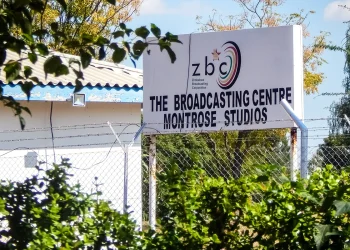Ghanaian entrepreneur and investor Richard Nii-Armah Quaye has announced a ₵300 million investment initiative aimed at scaling existing businesses across Ghana. Known as The Scale Up Fund, the programme is designed to provide growth-stage capital, strategic guidance, and long-term support to founders with active operations that need resources to expand.
The fund, which sits under RNAQ Holdings, reflects a growing shift within Ghana’s entrepreneurial ecosystem. It marks a move away from reliance on foreign venture capital and toward mobilising local capital to fill one of the ecosystem’s most persistent gaps: post-seed funding for growth-ready businesses.
A Founder’s Journey: From Quick Credit to RNAQ Holdings
Richard Nii-Armah Quaye is best known as the founder of OYA (formerly Quick Credit), one of the largest microcredit providers in Africa, and Quick Angels, an angel investing platform that has funded numerous early-stage businesses across Ghana. His new role as President of RNAQ Holdings represents a transition toward structured, scalable capital deployment at the next tier of enterprise development.
Over the past decade and a half, Quaye has built a strong operational reputation in financial services, both in Ghana and across the region. Through Quick Angels, he became one of the few institutionalised angel investors in the country, offering pre-seed capital to founders in sectors as diverse as agritech, retail, and logistics.
The launch of the Scale Up Fund signals a maturation of that thesis. The focus is no longer just about discovering potential; it is now about helping validated businesses grow with the kind of capital and guidance that is typically scarce at the growth stage.
The Fund’s Design and Structure
The Scale Up Fund will begin deployment in October 2025, starting with a selection process for entrepreneurs aged 20 to 45. The programme offers real investment not grants or donations, and includes strategic mentorship and operational support from Quaye and his team.
Key features include:
- Direct capital investment into operating businesses
- Founder access to long-term strategic guidance
- No restriction to tech or innovation-only sectors
- A selection process built around pitching to the investor directly
This approach moves beyond incubators and accelerators. It focuses instead on founders who have already navigated the early turbulence of product validation and are now poised to expand across Ghana or beyond.
Addressing Ghana’s Growth-Stage Capital Gap
Ghana’s startup and SME ecosystem has grown rapidly in recent years. Institutions such as MEST, the Ghana Innovation Hub, and local diaspora-backed ventures have helped boost the number of funded founders. Yet most of this support has concentrated on early-stage capital—seed rounds, pitch competitions, and grant-style funding.
For startups that survive the initial phase and demonstrate viable traction, there remains a sharp drop-off in funding availability. These are companies too big for grants, too mature for angels, and often too local for foreign VCs prioritising Nigeria, Kenya, or Egypt.
The Scale Up Fund directly targets this underserved segment. It offers a new layer of growth-stage capital that has been largely missing from Ghana’s financing landscape. This capital is particularly important for businesses seeking to expand inventory, technology systems, regional operations, or talent.
The Value of Local Capital
What distinguishes this initiative is the origin and control of the capital. Unlike many VC-backed funds that depend on international LPs or DFIs, the Scale Up Fund is locally anchored. This reduces misalignment between investor expectations and the realities of operating in Ghana.
Local capital brings advantages beyond financing. It comes with contextual understanding, cultural fluency, and longer-term patience. For founders who often struggle to explain local market dynamics to foreign investors, this fund may offer a more nuanced, supportive path to growth.
It also sends a strong message to the broader ecosystem: high-net-worth individuals and successful entrepreneurs can and should play a larger role in financing the businesses of tomorrow.
A New Phase for the Ghanaian Ecosystem
The launch of the Scale Up Fund represents more than just a new vehicle for investment. It marks a shift in the structure of Ghana’s startup economy. By creating space for capital that sits between angel investment and venture capital, the fund helps establish the kind of financing ladder that is necessary for ecosystems to mature.
If the initiative succeeds, it could:
- Unlock more investable companies for future Series A or institutional rounds
- Encourage the professionalisation of angel networks into growth-stage platforms
- Inspire other African founders to follow suit by recycling success into scalable capital structures
- Reduce the overreliance on international venture capital and grants, which often come with rigid constraints
In short, the Scale Up Fund offers a pragmatic path forward for Ghana’s funding landscape. It acknowledges that many local businesses do not need hype or headlines. They need working capital, patient investors, and the tools to move from survival to scale.
This article was rewritten with the aid of AI
At Techsoma, we embrace AI and understand our role in providing context, driving narrative and changing culture.













